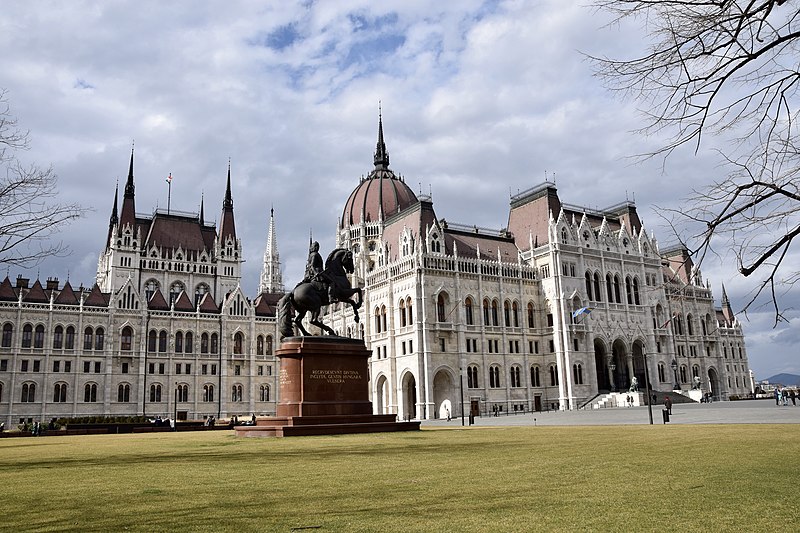The Hungarian government was delaying parliament’s ratification of Sweden’s NATO bid due to its grievances with Sweden. The government cites Stockholm’s criticism of Hungarian Prime Minister Viktor Orban’s policies.
The spokesperson for the Hungarian government, Zoltan Kovacs, said on Wednesday that parliament was delaying the ratification of Sweden’s bid to join the NATO alliance out of Budapest’s grievances. The grievances were surrounding Stockholm’s criticism of Orban’s policies. Kovacs said both sides need to put in the effort to overcome the gap.
“In the case of Sweden, there is an ample amount of grievances that need to be addressed before the country’s admission is ratified,” said Kovacs, adding that Swedish representatives “have been repeatedly keen to bash Hungary through diplomatic means, using their political influence to harm Hungarian interests.”
Kovacs was referring to Stockholm’s criticism over the decline of the rule of law by Orban’s government in the past 13 years. Orban has denied the allegations. Kovacs also said Sweden has taken a “hostile” attitude to Hungary for years and also cited Turkey’s objections to Sweden’s accession in the alliance.
Sweden and Finland both applied to join the NATO alliance last year as a result of Russia’s invasion of Ukraine. However, their applications ran into objections from Turkey, the main holdout and one of the two countries aside from Hungary that have yet to ratify the two Nordic countries’ applications.
The Hungarian parliament on Monday approved the bill for Finland to join NATO. The approval by Budapest follows the go-signal by Turkish President Tayyip Erdogan last week to begin ratification of Finland’s NATO bid.
On Sunday, NATO criticized the nuclear rhetoric by Russian leader Vladimir Putin, who announced that he would order the deployment of tactical nuclear weapons in Belarus. Putin compared the move to the United States stationing some of its weapons in Europe and insisted that the move would not breach Russia’s nuclear non-proliferation promises.
“Russia’s reference to NATO’s nuclear sharing is totally misleading. NATO allies act with full respect of their international commitments,” said NATO spokesperson Olga Lungescu in an emailed statement to Reuters. “Russia has consistently broken its arms control commitments.”



 Trump Endorses Japan’s Sanae Takaichi Ahead of Crucial Election Amid Market and China Tensions
Trump Endorses Japan’s Sanae Takaichi Ahead of Crucial Election Amid Market and China Tensions  Trump’s Inflation Claims Clash With Voters’ Cost-of-Living Reality
Trump’s Inflation Claims Clash With Voters’ Cost-of-Living Reality  U.S. Announces Additional $6 Million in Humanitarian Aid to Cuba Amid Oil Sanctions and Fuel Shortages
U.S. Announces Additional $6 Million in Humanitarian Aid to Cuba Amid Oil Sanctions and Fuel Shortages  Trump Signs “America First Arms Transfer Strategy” to Prioritize U.S. Weapons Sales
Trump Signs “America First Arms Transfer Strategy” to Prioritize U.S. Weapons Sales  Iran–U.S. Nuclear Talks in Oman Face Major Hurdles Amid Rising Regional Tensions
Iran–U.S. Nuclear Talks in Oman Face Major Hurdles Amid Rising Regional Tensions  Japan Election 2026: Sanae Takaichi Poised for Landslide Win Despite Record Snowfall
Japan Election 2026: Sanae Takaichi Poised for Landslide Win Despite Record Snowfall  U.S. Lawmakers to Review Unredacted Jeffrey Epstein DOJ Files Starting Monday
U.S. Lawmakers to Review Unredacted Jeffrey Epstein DOJ Files Starting Monday  Missouri Judge Dismisses Lawsuit Challenging Starbucks’ Diversity and Inclusion Policies
Missouri Judge Dismisses Lawsuit Challenging Starbucks’ Diversity and Inclusion Policies  U.S.-India Trade Framework Signals Major Shift in Tariffs, Energy, and Supply Chains
U.S.-India Trade Framework Signals Major Shift in Tariffs, Energy, and Supply Chains  Trump Signs Executive Order Threatening 25% Tariffs on Countries Trading With Iran
Trump Signs Executive Order Threatening 25% Tariffs on Countries Trading With Iran  Pentagon Ends Military Education Programs With Harvard University
Pentagon Ends Military Education Programs With Harvard University  Norway Opens Corruption Probe Into Former PM and Nobel Committee Chair Thorbjoern Jagland Over Epstein Links
Norway Opens Corruption Probe Into Former PM and Nobel Committee Chair Thorbjoern Jagland Over Epstein Links  Jack Lang Resigns as Head of Arab World Institute Amid Epstein Controversy
Jack Lang Resigns as Head of Arab World Institute Amid Epstein Controversy  Netanyahu to Meet Trump in Washington as Iran Nuclear Talks Intensify
Netanyahu to Meet Trump in Washington as Iran Nuclear Talks Intensify  China Warns US Arms Sales to Taiwan Could Disrupt Trump’s Planned Visit
China Warns US Arms Sales to Taiwan Could Disrupt Trump’s Planned Visit  New York Legalizes Medical Aid in Dying for Terminally Ill Patients
New York Legalizes Medical Aid in Dying for Terminally Ill Patients  TrumpRx.gov Highlights GLP-1 Drug Discounts but Offers Limited Savings for Most Americans
TrumpRx.gov Highlights GLP-1 Drug Discounts but Offers Limited Savings for Most Americans 































